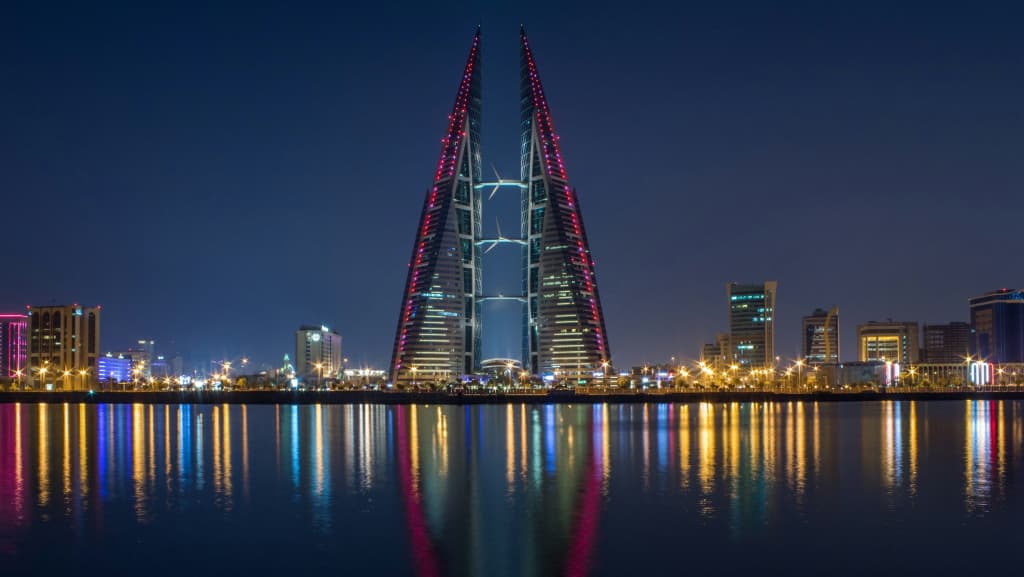
Bahrain Emerges As Most Cost-Effective GCC Hub for Fin-Tech Firms
EY Report Highlights Bahrain’s 48% Cost Advantage, Streamlined Regulation, and Talent-Driven Innovation
Bahrain has been ranked as the most cost-effective country in the Gulf Cooperation Council (GCC) to operate a financial services firm with a technology hub, according to a newly released report by Ernst & Young LLP (EY), USA. The report, Cost of Doing Business in the GCC: Financial Services Sector, reveals that Bahrain offers a 48% cost advantage over its regional peers, making it the leading destination for fintech innovation and global financial expansion in the Middle East.
The study analyzed the total annual operating expenses across six GCC countries—Bahrain, Kuwait, Oman, Qatar, Saudi Arabia, and the UAE—focusing on key cost elements including office rental, labor, licensing fees, taxation, and visa/residency costs.
Bahrain Leads Across All Key Metrics
Bahrain outperformed all other nations in the region across several categories. Labor costs for financial services tech hubs in Bahrain are up to 24% lower than the GCC average, office space rentals offer 60% in savings, and business and licensing fees are up to 85% more affordable. These significant savings present Bahrain as an attractive launchpad for innovation and digital transformation in financial services.
Tech Talent and Regulatory Simplicity Drive Growth
Ali Al Mudaifa, Chief of Business Development at the Bahrain Economic Development Board (EDB), emphasized the strategic advantage Bahrain offers:
“In today’s digital economy, building strong tech ecosystems is vital for financial institutions aiming to stay competitive and forward-thinking. Bahrain offers not just cost savings, but an ideal mix of tech-savvy talent, regulatory support, and infrastructure that appeals to global financial players.”
Further enhancing Bahrain’s appeal is its streamlined regulatory framework. The Central Bank of Bahrain (CBB) serves as the sole financial regulator, providing a unified, category-based licensing system that allows for greater operational flexibility across financial services.
Global Institutions Are Investing
Major global financial institutions are already capitalizing on Bahrain’s advantages:
-
Citi’s Global Tech Hub has committed to employing 1,000 Bahraini coders
-
JP Morgan’s Global Technology Centre is creating 200 high-skilled tech jobs
These moves reflect Bahrain’s rapidly growing reputation as a fintech and innovation hub, further supported by its international rankings—4th globally for skilled labor and 6th for digital and technological skills, according to the IMD World Competitiveness Ranking.
Focus on High-Skilled Roles
The EY report highlights that more than half the workforce in Bahrain’s tech hubs comprises high-value roles such as data analysts, software developers, and web developers—demonstrating the Kingdom’s ability to attract top-tier talent while keeping operational costs low.
A Strategic Gateway for Financial Services
Andrew Phillips, Partner and Co-leader of Quantitative Economics & Statistics (QUEST) at EY, noted:
“Tech hubs are the heartbeat of modern financial services. Bahrain’s favorable cost structure allows firms to shift resources from basic expenses to high-value innovation.”
As the GCC continues its digital transformation journey, Bahrain is cementing its status as a strategic and affordable gateway for global financial institutions aiming to establish or expand their presence in the region.
For any enquiries or information, contact info@thelawreporters.com or call us on +971 52 644 3004. Follow The Law Reporters on WhatsApp Channels